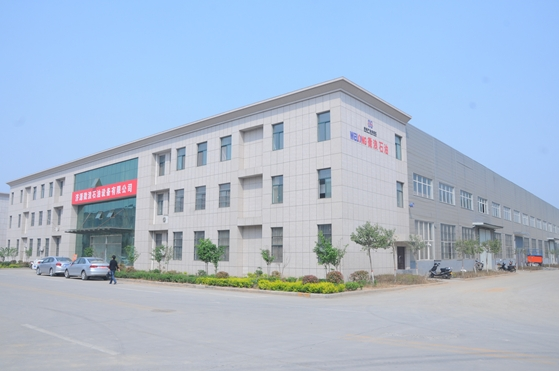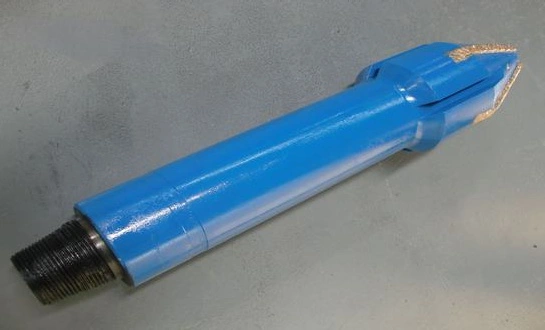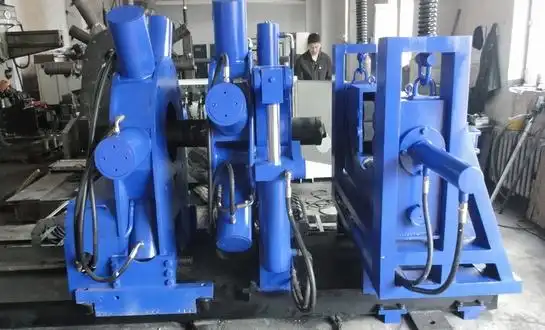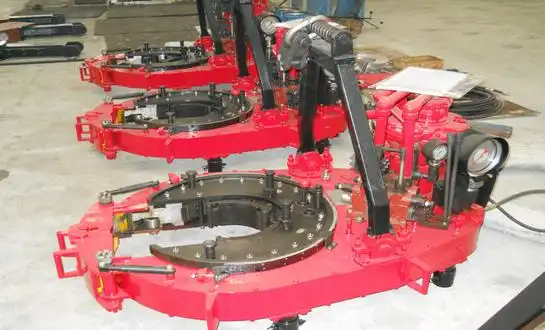Key Features and Benefits of Casing Power Tongs
Automated Torque Control
One of the standout features of modern Casing Power Tongs is their automated torque control system. This advanced technology allows for precise application of torque to casing connections, ensuring that each joint is tightened to the exact specifications required. The ability to consistently achieve optimal torque levels not only enhances the integrity of the casing string but also significantly reduces the risk of over-torquing or under-torquing, which can lead to connection failures or leaks. This level of precision contributes to improved well integrity and longevity, ultimately enhancing the overall efficiency and reliability of drilling operations.
Increased Speed of Operations
Casing Power Tongs dramatically increase the speed at which casing strings can be assembled and disassembled. The automated nature of these tools allows for rapid makeup and breakout of casing joints, significantly reducing the time required for these critical operations. This increased speed translates directly into reduced rig time, which is one of the most substantial cost factors in drilling projects. By accelerating the casing process, Casing Power Tongs enable drilling teams to complete wells faster, allowing for more efficient use of resources and potentially increasing the number of wells that can be drilled within a given timeframe.
Enhanced Safety Features
Safety is paramount in drilling operations, and Casing Power Tongs incorporate numerous features designed to protect rig personnel. These include remote operation capabilities, which allow operators to control the tong from a safe distance, reducing their exposure to potential hazards on the rig floor. Additionally, many modern Casing Power Tongs are equipped with advanced safety interlocks and emergency stop systems, further minimizing the risk of accidents. By enhancing safety, these tools not only protect workers but also contribute to efficiency by reducing downtime related to safety incidents and promoting a smoother, more confident workflow on the rig.
Operational Improvements Achieved with Casing Power Tongs
Reduction in Non-Productive Time
One of the most significant operational improvements achieved through the use of Casing Power Tongs is the substantial reduction in non-productive time (NPT). Traditional manual methods of handling casing can be time-consuming and prone to delays, often resulting in extended periods of rig inactivity. Casing Power Tongs streamline this process, minimizing the time spent on casing operations and allowing for a more continuous drilling workflow. This reduction in NPT not only improves overall drilling efficiency but also translates into significant cost savings, as rig time is one of the most expensive components of drilling operations.
Improved Connection Reliability
The precision and consistency offered by Casing Power Tongs lead to markedly improved connection reliability. By applying exact torque specifications to each joint, these tools ensure that every connection in the casing string meets the required standards. This level of reliability reduces the likelihood of connection failures, which can result in costly fishing operations or, in worst-case scenarios, the loss of the wellbore. The improved integrity of casing connections contributes to the overall quality of the well, potentially extending its productive life and enhancing long-term operational efficiency.
Enhanced Data Collection and Analysis
Modern Casing Power Tongs often come equipped with advanced data collection and analysis capabilities. These systems can record detailed information about each connection, including applied torque, rotation speed, and other critical parameters. This wealth of data allows drilling teams to optimize their casing operations over time, identifying trends and potential issues before they become problematic. The ability to analyze performance data in real-time enables continuous improvement of drilling processes, further enhancing efficiency and reducing the likelihood of costly mistakes or equipment failures.
Future Trends and Innovations in Casing Power Tong Technology
Integration with Automated Drilling Systems
As the oil and gas industry moves towards increased automation, Casing Power Tongs are likely to become more closely integrated with broader automated drilling systems. This integration could allow for seamless coordination between various drilling operations, with Casing Power Tongs automatically adjusting their performance based on real-time drilling data. Such integration has the potential to further streamline the drilling process, reducing downtime between operations and enabling more efficient use of rig resources. The result would be a more cohesive and efficient drilling operation, with Casing Power Tongs playing a central role in the automated workflow.
Advanced Materials and Design
Future innovations in Casing Power Tong technology are likely to focus on the use of advanced materials and improved design principles. These developments could lead to tongs that are lighter, more durable, and capable of handling a wider range of casing sizes and types. The use of composite materials, for example, could reduce the weight of the tongs without compromising their strength, making them easier to maneuver and potentially reducing transportation costs. Additionally, advancements in hydraulic and electronic systems could result in more precise control and even greater operational efficiency.
AI-Powered Optimization
The integration of artificial intelligence (AI) into Casing Power Tong operations represents an exciting frontier for future development. AI algorithms could analyze vast amounts of operational data to optimize torque applications, predict maintenance needs, and even adapt to varying geological conditions in real-time. This level of intelligent automation could further enhance drilling efficiency by reducing the need for human intervention, minimizing errors, and ensuring that casing operations are always performed under optimal conditions. As AI technology continues to advance, its application in Casing Power Tongs could lead to unprecedented levels of efficiency and reliability in drilling operations.
In conclusion, Casing Power Tongs have become an indispensable tool in modern drilling operations, significantly enhancing efficiency through automation, precision, and safety improvements. As technology continues to evolve, these tools are poised to play an even more critical role in optimizing drilling processes and reducing operational costs. For those interested in learning more about Casing Power Tongs and their impact on drilling efficiency, we invite you to reach out to our team of experts at oiltools15@welongpost.com. Our specialists are ready to provide in-depth insights and discuss how these innovative tools can benefit your specific drilling operations.





